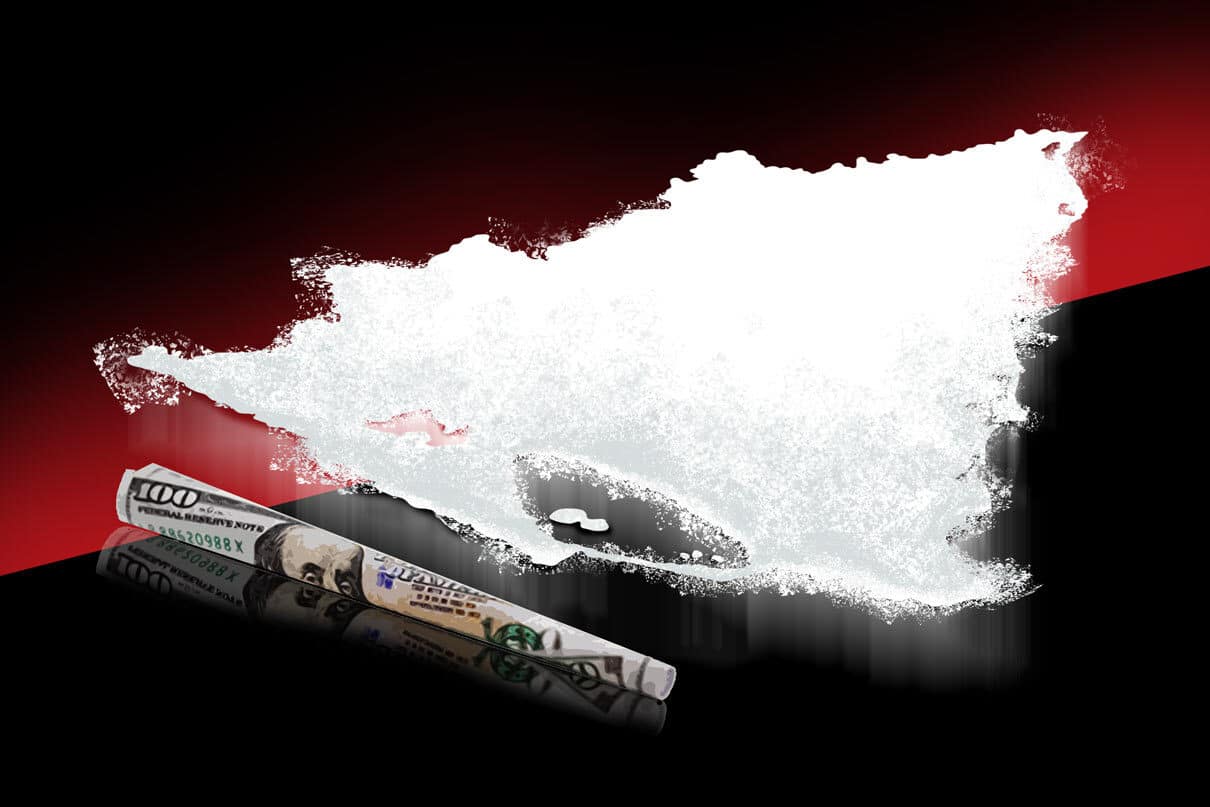The U.S. Department of State has called on the Sandinista regime of Daniel Ortega and Rosario Murillo to strengthen its security apparatus to confront drug trafficking, at a time when cooperation between U.S. surveillance agencies and Nicaragua has reached a deadlock due to the regime’s refusal to collaborate.
“The United States urges the Ortega-Murillo dictatorship to ensure that its security agencies take responsible measures to properly identify and apprehend individuals involved in the illicit trafficking of narcotics,” reads a statement from the U.S. Department of State in response to an inquiry by DIVERGENTES.
In contrast, the State Department highlighted its close partnership with Costa Rican authorities in combating drug trafficking. “The Bureau of International Narcotics and Law Enforcement Affairs (INL) maintains a strong working relationship with the Costa Rican government and judicial sector to target drug trafficking organizations attempting to move narcotics through Costa Rican territory toward the United States,” the statement adds.
“INL works closely with U.S. law enforcement agencies like the DEA, FBI, Coast Guard, and Customs and Border Protection (CBP) to support Costa Rican law enforcement in drug interdiction and criminal prosecution. These partnerships have led to major drug seizures and numerous arrests in recent years, including the dismantling of three fentanyl trafficking networks—demonstrating the effectiveness of our joint efforts to take down drug trafficking operations,” the statement continues.
A special report by DIVERGENTES revealed how the U.S. agency’s withdrawal completely undercuts one of the Ortega-Murillo dictatorship’s key propaganda slogans: that it runs an effective “containment wall” strategy against drug trafficking in Central America.
The United States, in its International Narcotics Control Strategy Report, announced the withdrawal of the Drug Enforcement Administration (DEA) from Nicaragua due to the regime’s “lack of cooperation” in counter-narcotics efforts. Nicaragua’s strategic location in Central America makes it a key corridor for drug transit.
“Human rights violations and rampant corruption in Nicaragua have led the United States, the European Union, and other countries to impose economic sanctions and suspend security assistance. As a result, Nicaragua has become increasingly uncooperative in the fight against drug trafficking and often ignores routine information requests. The United States will end DEA operations in Nicaragua in 2025, in part due to the lack of cooperation from Nicaraguan agencies,” the report, released in March 2025, states.
The Ortega-Murillo regime has long used the “containment wall” narrative to convince the United States of its relevance in curbing drug flows in the region. Until now, counter-narcotics collaboration had been one of the few remaining areas of alignment between Managua and Washington amid tense bilateral relations. But the DEA’s withdrawal not only breaks that tie—it also calls into question Nicaragua’s commitment and effectiveness in combating drug trafficking.
One case that underscores the lack of cooperation between Nicaraguan and U.S. security agencies is that of Costa Rican drug trafficker Alejandro Arias Monge, alias El Diablo.
The U.S. Embassy in Managua warned that the criminal may be hiding in Nicaragua, a claim echoed by Costa Rican authorities.
The State Department’s INL, through its Transnational Organized Crime Rewards Program (TOCRP), has offered a $500,000 reward for information leading to the arrest or conviction of El Diablo, in any country.
“Arias is the leader of a violent transnational criminal organization and the most wanted fugitive in Costa Rica. He has multiple arrest warrants in Costa Rica for drug trafficking, robbery, aggravated homicide, and money laundering. According to the DEA, Arias has conspired with numerous traffickers and drug trafficking organizations to move shipments of hundreds of kilograms of cocaine from Colombia,” the statement says.
In February 2025, during a ceremony where he was officially reappointed as head of Nicaragua’s National Police, First Commissioner Francisco Díaz—who is also Ortega and Murillo’s in-law—touted the alleged success of the “containment wall” strategy, carried out in coordination with the military.
“Between 2018 and 2024, through the implementation of the containment wall strategy in the fight against organized crime and drug trafficking—alongside our brothers in the Nicaraguan Army, the Public Ministry, the Attorney General’s Office, and the judiciary—we have prevented the establishment of any social or logistical base for organized crime in our country. Between 2018 and 2024, we’ve seized 28.22 tons of cocaine and 23.96 tons of marijuana,” Díaz declared in his speech.
Díaz took over as head of the police in 2018, after the removal of Aminta Granera, though he had effectively held the position for several years prior. That same year, he was sanctioned by the U.S. Treasury Department, accused of being one of the main officials responsible for human rights violations during the nationwide protests.
A fact-checking investigation by DIVERGENTES revealed that Nicaragua’s drug seizures have steadily declined in recent years, while countries like Costa Rica and Panama have improved their efficiency in intercepting narcotics.
For years, the Sandinista regime has concealed the trail of drugs and money seized within the country. Between 2018 and 2023, the National Police confiscated nearly $60 million from drug traffickers, yet the amount of drugs seized was negligible compared to neighboring Central American countries.
Drug movements continue along the usual trafficking routes across Nicaragua, without the arrest of a single high-level trafficker. Contrary to legal requirements, authorities provide no information on the final destination of the confiscated money or the drugs intercepted during operations.





